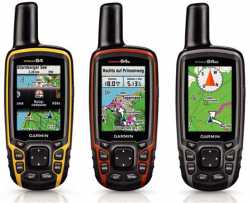>>2699271This. Garmins are solid. Just any of the basic models will do. Any of the models in OP's picture is good.
Now, here's some observations I have done:
Do not underestimage your cellphone GPS either. They are surprisingly good when compared to dedicated hand-held GPS gear. Usually phones have better processing speed and better screens, so the user experience is smoother and faster. Maybe the dedicated ones have better antennas, but as far as I can tell, cellphones are perfectly accurate to a single degree of compass bearing and comparable to dedicated GPS's. The problem with cellphones is that they usually want to download the maps from the internet, which can be a problem if you really go out of the beaten path and into the wilderness. So download those maps onto your phone memory card.
The dedicated hand-helds do have a couple of key features that have an upper hand over cellphones. First, they have big physical buttons which allow them to be used even with big heavy gloves (very good if in colder climates/winter) and secondly they usually have a dedicated "Make a mark here" button. So you can just mark points of interests as you come across them with a single button-press, without any need to scroll through inventories/menus.
Also, since it is a dedicated unit, it has no other background processess to drain the batteries, so battery life is usually better than in cellphones. Also they usually work with rechargeable batteries (which can be substitutes with just basic alcaline batteries) so you have multiple versatile power options. .
So I would say that
1) Your cellphone can and will work as a gps in 90% of situations you might come across. and
2) having a hand-held dedicated GPS unit is an excellent back-up for those last 10% of "Didn't think it would come to this" situations.
Having a dedicated GPS device in your car/boat or such should be part of your emergency gear, just as a map an a compass should. (get the map and compass first)

